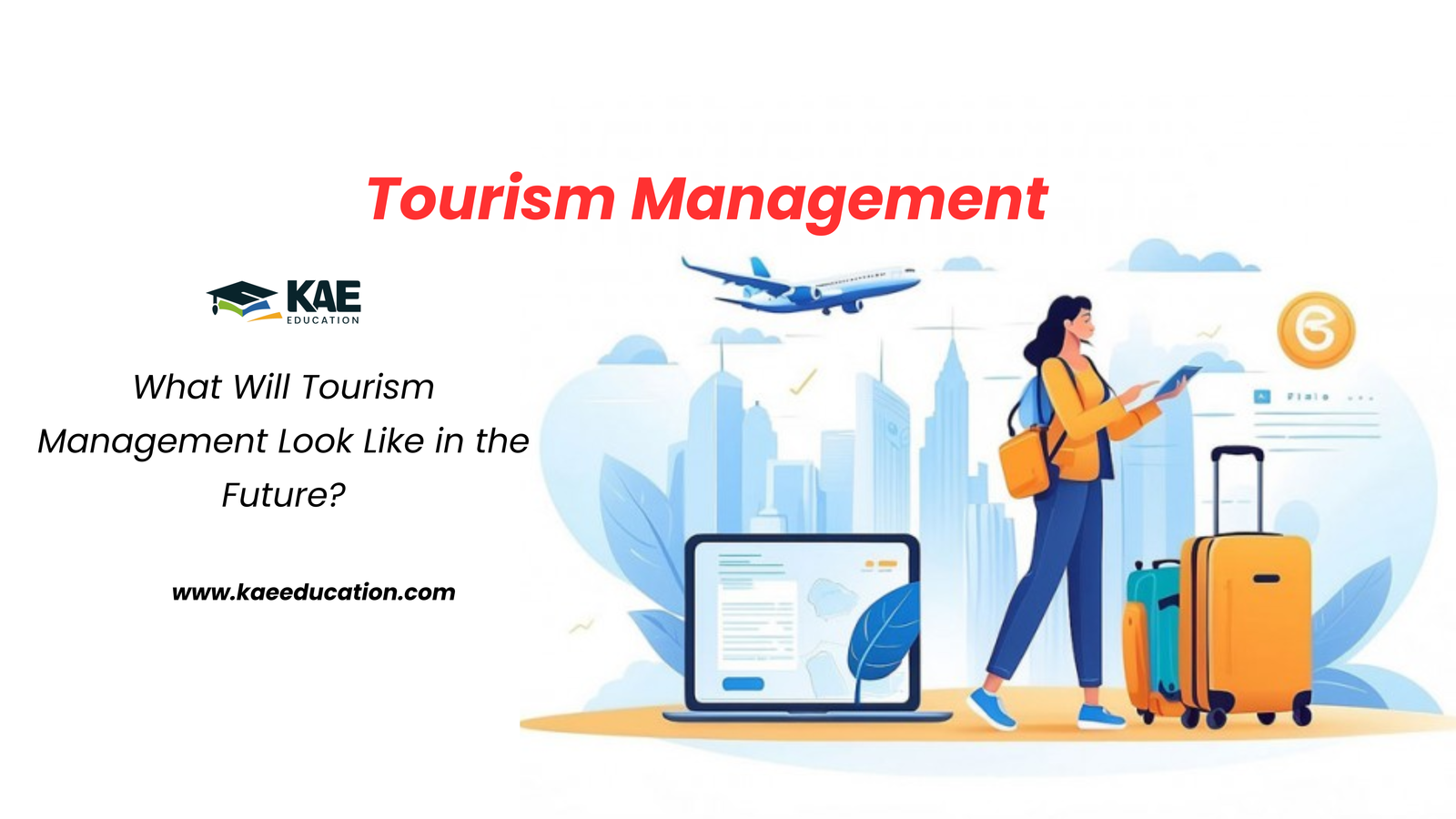What Will Tourism Management Look Like in the Future?
Tourism is one of the world’s largest and most dynamic Industries, continuously evolving to meet changing demands and global trends. As we look towards the Future, Tourism management is expected to undergo significant transformations driven by technological advancements, sustainability concerns, and evolving consumer preferences. The Industry will rely on innovative solutions to enhance customer experiences, streamline operations, and address the challenges of a rapidly changing world. Here’s a look at what Tourism management will look like in the Future and how it will impact Businesses, Travelers, and the Industry at large.
The Future of Tourism Management: Key Trends
(1) Technology Integration in Tourism Operations The integration of technology will be a game-changer for Tourism management in the future. From AI-driven chatbots to virtual reality (VR) travel experiences, technology will help enhance the way tourists engage with destinations. Tools like augmented reality (AR) will allow travelers to virtually explore destinations before booking, while AI will power personalized recommendations for flights, accommodations, and activities.
(i) AI and Data Analytics:-
Tourism Businesses will increasingly use AI and Data analytics to better understand customer preferences and offer customized experiences.
(ii) Automation:-
From check-ins at airports to hotel room service, automation will streamline operations, reducing wait times and enhancing efficiency.
(2) Sustainability and Eco-Tourism As climate change continues to dominate global discussions, sustainability will be a key focus in Tourism management. The future of Tourism will prioritize eco-friendly practices to reduce carbon footprints and ensure the protection of natural resources. This will include sustainable travel options, responsible tourism practices, and a shift toward eco-friendly accommodations.
(i) Carbon Neutral Travel:-
Companies will invest in carbon offset programs and offer green certifications for sustainable destinations.
(ii) Local Impact:-
Tourists will increasingly seek experiences that positively impact local communities, focusing on cultural preservation and environmental conservation.
(3) Personalized and Experiential Travel The demand for personalized, authentic, and immersive travel experiences is expected to rise significantly. Tourism management in the future will shift from offering generic vacation packages to curating one-of-a-kind, tailored experiences that cater to individual needs and preferences.
(i) Tailored Itineraries:-
Advanced analytics and AI will enable Tourism Businesses to offer more personalized itineraries based on traveler profiles.
(ii) Local Experiences:-
Tourists will seek more local and authentic experiences, such as private cooking classes or guided historical tours, instead of traditional sightseeing.
(4) Health and Safety Concerns Post-Pandemic The global pandemic has reshaped how people view travel. In the Future, Tourism management will need to adapt to the ongoing Health and safety needs of travelers. This includes ensuring that hotels, airlines, and destinations meet stringent hygiene standards and provide flexible booking policies to accommodate changes in travel plans.
(i) Health Protocols:-
Regular Sanitation, Health Screenings, and Touchless Technology will become the norm.
(ii) Flexible Bookings:-
Travel companies will offer more flexible booking options to reassure travelers that they can adjust plans as needed.
(5) The Rise of Remote and Bleisure Travel As remote work becomes more prevalent, the line between Business and leisure travel is increasingly blurred. The concept of “bleisure” travel, where Business trips are combined with leisure activities, will become more common. Tourism management will need to cater to these new travel trends by offering packages that blend Business and leisure seamlessly.
(i) Workcation Destinations:-
Hotels and resorts will create spaces designed specifically for remote workers, complete with high-speed internet, workspaces, and wellness programs.
(ii) Corporate Retreats:-
Businesses will use travel as a tool for team building and employee engagement, offering retreats that combine Business meetings with recreational activities.
What Does This Mean for Tourism Management Professionals?
As the Industry evolves, tourism management professionals must adapt to these changes. There will be an increasing need for skills in Technology, Sustainability, and Customer experience. Managing a successful Tourism Business will require an understanding of global trends, technology integration, and the ability to anticipate customer needs in an ever-changing environment.
Conclusion
The future of Tourism management is full of exciting opportunities driven by Technological innovation, Sustainability, and the evolving needs of travelers. As the Industry adapts to these changes, Tourism Businesses will need to be flexible, forward-thinking, and customer-centric. For professionals in the field, staying ahead of these trends will be key to shaping the next generation of Tourism experiences. Whether it’s leveraging AI for personalization or focusing on eco-friendly practices, Tourism management will continue to evolve, offering endless opportunities for growth and innovation.
Frequently Asked Questions (FAQs)
Technology will revolutionize Tourism management by enabling personalized experiences, automating processes, and improving operational efficiency. AI, virtual reality, and data analytics will play a significant role in shaping the future.
Yes, sustainability will be a central theme in Tourism management as Travelers increasingly seek eco-friendly travel options. Businesses will need to adopt sustainable practices to remain competitive.
Personalized travel experiences will require tourism professionals to leverage data and AI to curate tailored itineraries that meet the specific needs and desires of individual travelers.
The pandemic has heightened the need for stringent Health protocols, flexible booking options, and contactless services in Tourism management. These changes will continue to shape the Industry moving forward.
Bleisure travel combines leisure and Business travel. Tourism management will need to accommodate this trend by offering packages that blend work and play, such as remote workspaces and corporate retreats.
To stay ahead, Tourism professionals should focus on learning new technologies, embracing sustainability, and staying informed about changing consumer preferences to better cater to future travelers.
Tourism managers will need to develop skills in Technology integration, Data analytics, Sustainability practices, and Customer experience management to thrive in the evolving Tourism landscape.

